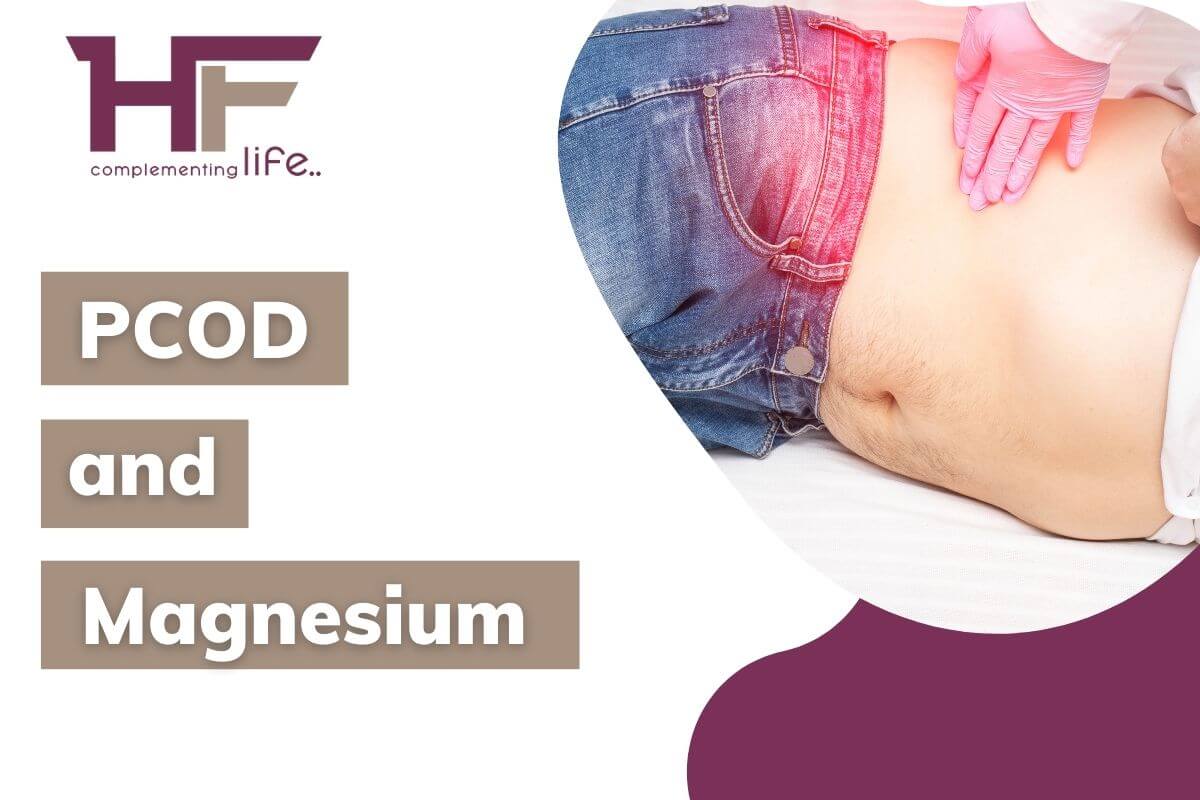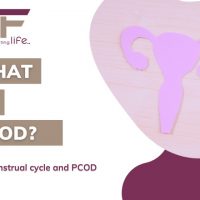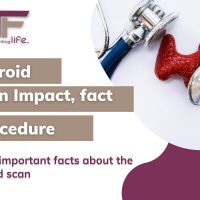Magnesium is one of the most important micronutrients for the human body.it is involved in many physiological way and is essential for the maintenance of normal cell and organ function.
Magnesium deficiency in a healthy individual is quite rare, but needs may change throughout life.
Magnesium is well recognised in obstetrics and gynaecology area.
Magnesium use in women, both in terms of prevention and treatment, is extended to many health issues from the pre-menstrual syndrome, from pregnancy to menopause, and beyond.
I’ve recently had a lot of questions about the very important supplement and I have become more and more intrigued to look into its benefits myself.
so, here we go
CContents
What about Magnesium for PCOS?
Is it a worthwhile supplement to take and how does it help?
Well, let’s answer some of those questions. But first, let’s look at what Magnesium is and what it actually does in our bodies.
Magnesium is a mineral that we get through our diets. It is also the second most common deficiency in developed countries, behind vitamin D.
Well, the soil that all of our plants are grown in has become depleted of Magnesium over the years. So, we’re not getting as much magnesium as we once were.
Let’s start searching the causes of deficiency of Magnesium
- Taking too many amounts of certain nutrients such as sodium, calcium, or iron can affect the absorption of magnesium.
- Certain medications such as birth control pills or diuretics.
- Even lifestyle factors like high-stress living can affect the level of magnesium.
- Magnesium is the fourth most abundant mineral in the body, and women with PCOS may not be getting enough of it.
- According to a study in the Journal of Gynaecology and endocrinology, women with a magnesium deficiency are 19 times more likely to have PCOS.
- Magnesium plays a role as a co-factor in some major processes in the body.
- it’s involved in insulin and glucose signalling and magnesium is needed to regulate heart contractions.
- Having a deficiency of magnesium has been shown to increase your risk for developing type 2 diabetes and is associated with worse health outcomes.
Why Women with PCOD/PCOS NEED MAGNESIUM
THERE ARE MANY BENEFITS OF HAVING OPTIMAL LEVELS OF MAGNESIUM.
MAGNESIUM HAS BEEN SHOWN TO REDUCE
PAIN AND INFLAMMATION.
- it promotes better sleep.
- Relieves symptoms of PMS.
REDUCE ANXIETY
- Anxiety, as well as depression, affects many women with PCOS.
- Having a low level of magnesium is believed to be an underlying cause of anxiety.
- A review of 18 studies showed that magnesium does have a beneficial effect on people with anxiety.
- Individuals who receive magnesium supplementation see reductions in the following symptoms:
- common anxiety sympathy such as
- Reduce apathy
- Reduce anxious behaviour
- Reduce anger
- Reduce nervousness
- Reduce insomnia
- Decrease rapid pulse or
- The problem of heart palpitation.
- it is believed that magnesium works to calm the excitability of the Nervous System to help reduce anxiety.
- Magnesium supplementation has also been shown to promote better sleep which can also have a beneficial effect on anxiety.
IMPROVES INSULIN RESISTANCE
- When compared to women without PCOS, women with the syndrome have higher levels of insulin, with most women with PCOD having insulin resistance.
- An important role of magnesium is in glucose and insulin regulation to help glucose enter cells where it is used for energy.
- In the deficiency of magnesium, glucose can’t enter the cells due to poor diet, poor lifestyle, or other factors.
- As a result, the patient feels fatigued and increases the risk of developing type 2 diabetes.
LOWERS BLOOD PRESSURE
- Some women with PCOD have high blood pressure also called hypertension.
- High blood pressure is a risk for heart disease.
- A diet rich in fruits and vegetables is an effective way to reduce high blood pressure as well as other metabolic aspects in a woman with PCOS.
- A review of nine studies showed that the more magnesium in your cells, the more likely you are to have lower blood pressure.
CHECKING FOR A MAGNESIUM DEFICIENCY
- Unfortunately, there is not one good or easy test to detect the level of magnesium.
- blood levels are unreliable as the majority of magnesium is found in the bone.
- The body works in such a way that if the blood level of magnesium gets pulled out of bones to keep blood level up.
SIGNS OF MAGNESIUM DEFICIENCY
These are common complaints in those with a low level of magnesium:
- weight gain
- Fatigue
- Unwanted hair growth
- Thinning hair on the head
- Infertility
- Acne
- Mood changes
- Pelvic pain
- headaches
- Sleep problems
Do not take magnesium if the patient has a heart problem called “heart block” or any kidney problems or kidney failure.
AYURVEDIC TREATMENT FOR PCOS
- Polycystic ovarian disease is a medical condition affecting the ovulation process in the menstrual cycle. The main cause for PCOD is due to hormonal imbalance causing the formation of multiple cysts inside the ovary resulting in irregular menstrual bleeding and infertility.
- The allopathic approach to this medical condition focuses on removing the problem superficially, rather than eliminating the disease at the root level.
- The unhealthy lifestyle followed by the youngster nowadays is observed to be the primary reason for PCOS.
- This has serious side effects affecting the overall health of the individual.
- It can also develop the production of the male hormone, testosterone, in the ovaries impeding the production of the ovum.
- Ayurvedic treatment for PCOS will remove the issue from its roots. Thereby preventing the recurrence of the problem and the person doesn’t have to consume Ayurvedic medicine for PCOD for a longer period.
Since the Ayurvedic medicine for PCOS is herbal, it doesn’t pose any threat of side effects.
Ayurvedic treatment depends upon the cause of the Disease.
The Hormonal imbalance includes the following:
- High level of testosterone(male hormone)
- High levels of luteinising hormone
- High level of Prolactin
- Low level of sex Hormone
- Overweight
The PCOD patient may exhibit the following symptoms too.
- Pelvic pain
- Anxiety
- The high blood glucose level
- Infertility
- Thinning of Hair
All these symptoms are produced due to an imbalance of hormone levels in the body. The discrepancy in hormone levels affects the release and maturation of eggs during the ovulation process resulting in infertility.
The Diagnostic process of PCOD is appended below:
Examination of the patient
The initial checking includes a physical examination of the patient.
Discussion about the medical history, to rule out the possibility of hereditary problems.
Study of Symptoms
It is to identify the reason for the condition. A patient may exhibit more than one symptom of PCOD most of the time. The analysis of the symptoms and further tests will confirm the cause of the medical problem.
Menstrual History
The doctor will analyse menstrual history send present variations in the menstrual cycle before going ahead with further examination. Thus suggesting Ayurvedic treatment for PCOD or Ayurvedic medicine for PCOD.
Internal tests and lab tests
The Ayurvedic doctor will suggest
- blood tests
- Thyroid profile
- ultrasound
- blood tests
- Abdominal and vaginal ultrasonography pinpoint the exact problem.
- hormone tests
The right kind of treatment starts after confirming the levels of hormones.
From an Ayurvedic perspective, excessive consumption of contraceptive pills, mental stress, and lack of physical activity can produce toxins in the body and cause diseases like PCOS.
- The Ayurvedic approach to treat PCOD reflects the regulation of rasa and rakta Dhatus, which means cleansing the body’s vital system.
- Imbalance in Hormone levels is rectified by removing the toxins and impurities from the body by balancing all three doshas in the body.
- Along with the Ayurvedic treatment, few lifestyle modifications have to be adopted.
AYURVEDIC HERBS WHICH HELP IN PCOS AND WEIGHT LOSS
- Cumin seeds or jeera: Cumin can be used by boiling with water and drinking throughout the day.
- Turmeric or haldi: Turmeric with zero fat milk or water is the best option to use.
- Cinnamon or Dalchini: It can be used in form of powder or tea.
So all these magical herbs are present in our kitchen and around. Herbal tea also helps to boost up the mood.










Comments